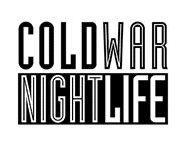The Mortality Tables project was born in Bloomsbury in 2019. The result of a conversation in a delicatessen, it has already led to a series of releases with Vince Clarke, Simon Fisher Turner, Rupert Lally, and other creatives. Their briefs from the label are often to take a found sound as a starting point and see where it leads them. The results are – in different weights, depending on the artist’s inspiration and the listener’s responses – charming, disturbing, and rewarding.
The driver behind Mortality Tables is Mat Smith, who splits his time between freelance music journalism and working with insurance companies. The name refers to the work of actuaries, who measure the statistical probability of life insurance payments needing to be made. It is inspired by the biography of Charles Ives, who also split his time between work for an insurance company and creative activity. Ives’ work was discovered and celebrated only after his death – something Smith has contemplated when thinking about the distance between his own creative outputs and the way he is seen by those close to him. Do they read his work? Do they listen to what he releases? Will they see it differently once time has taken him?

Mat Smith
These questions led Smith to write what he calls “a manifesto with a lower-case m.” On Mortality, Immortality & Charles Ives, which kicked the project off, featured Smith reading the manifesto in Gareth Jones’ studio with musical responses by Vince Clarke and venoztks. The Erasure man had met Smith through an interview with Electronic Sound magazine and stayed in touch.
In one of my many email exchanges with Vince, I said, “I’ve done this thing, would you be interested in putting sounds to it?” And he said, “Well, I’m not really doing very much at the moment. If you want some drones, I can give you some drones.” The idea of Vince Clarke doing drones really appealed. I think he said it in a kind of slightly sarcastic way, but I was really interested in this. What came back – very, very quickly – from him, was a piece that is distinctively Vince Clarke but distinctively not.
The results were a taster of the experimentation that ultimately became Clarke’s solo album, Songs of Silence. With good timing, Smith had found Clarke addressing his own isolation during lockdown through an exploration of new sounds and tools. A born collaborator, Clarke was able to take Smith’s recording to engage with and respond to.
There followed an album of processed samples for Cyclic Demonstrating – an anagram of Strictly Come Dancing – with Xqui. Cyclic Demonstrating took as its starting point the theme music for his family’s favourite TV talent show; the falseness of which also happens to trigger feelings of alienation and sadness in Smith.
A series of releases, linked as a numbered series of “LIFEFILES,” saw Dave Clarkson working on Smith’s recording from a flight to Scotland, Simon Fisher Turner responding to a field recording made in a Midlands church, and Andrew Spackman processing the sounds of clothes-hangers in a bedroom. In each of these, the starting point was something simple. Smith explains:
My field recordings are really basic. They’re pretty embarrassing. They’re basically recorded on the fly in different situations – like where we are [an Italian-themed café]. I have two recorded outside Liverpool Street station very late at night. This place has got its own sound character. I came out one night; there was a lady played mediaeval music outside – and so my natural instinct was to just pull out my phone and record it.
A recent album is a collaboration with Xqui that takes, as its spine, Smith’s reading of a list of the t-shirts that he wore during lockdown. It’s a bit eccentric, but it becomes a naming ritual – like The Dead Milkmen’s “You’ll Dance to Anything.” It describes a subculture that can recognise itself in an eyeball-graphic Residents shirt. Smith might have been isolated by public health concerns, but the t-shirts reflect a connection to a music movement outside of the mainstream – another step removed from the comfort of the herd. Music is invited in response, but there are no set parameters for contributors. “Habit is the input that you then delete,” Smith reflects.
Smith describes himself as “a frustrated creative person – frustrated because I have ideas and I can’t execute them.” Nevertheless, he has started to revisit his own sounds. On Equilibrium, recorded under the name Sketching Venus in 2000, Smith puts a Casio VL-Tone and a Maplin echo unit to use to create a short piece. It was then copied to a 3.5” floppy disk with a picture file and an explanatory note. The number of copies is limited to the number of disks Smith found when clearing out shelf debris.
In the spirit of the season, Dave Clarkson’s Ghosts of Christmas Past (Music from Vintage Toys) combines recordings of Smith as a toddler with “wind-up toys, tin robots, glockenspiels, dolls, Speak and Spell machines, musical boxes, chimes, Meccano, clocks, clackers, squeaky toys plus more.” The results are a melange of disco and ambient influences. The deluxe CD edition sold out quickly – but whether as artefacts or as pre-wrapped Christmas presents it is hard to say.
To wrap up the year, many of the Mortality Tables contributors sent in their versions of the Strictly Come Dancing theme song that was chewed up by Smith and Xqui at the start of the journey. Cyclic Demonstrating 2023 features Simon Fisher Turner, Moray Newlands, Rupert Lally, Sound Effects Of Death And Horror, Pete Murphy, Audio Obscura, SAD MAN, Alka, venoztks and Ivy Nostrum. The results call to mind the Touch project to create new ringtones for Nokia phones. Play them back as answers to the mindless, alienating rituals of BBC game shows and reconnect to your musical family.

